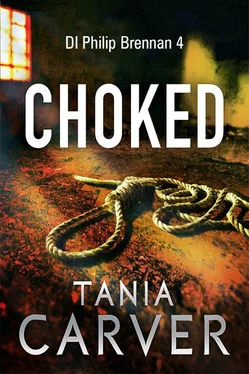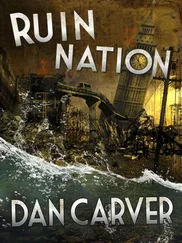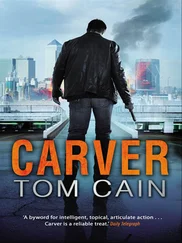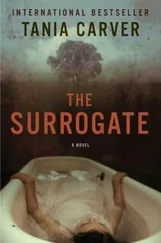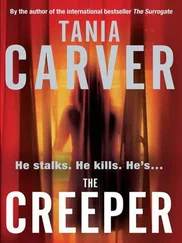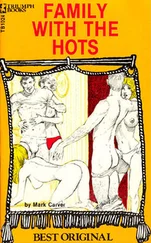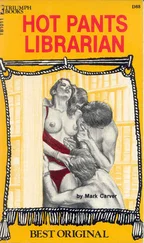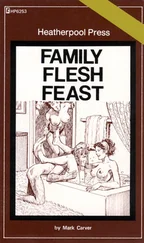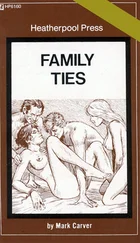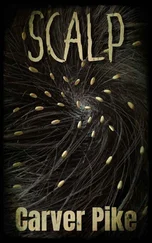Published by Hachette Digital
ISBN: 978-0-7481-2284-4
All characters and events in this publication, other than those clearly in the public domain, are fictitious and any resemblance to real persons, living or dead, is purely coincidental.
Copyright © Tania Carver 2012
All rights reserved. No part of this publication may be reproduced, stored in a retrieval system, or transmitted, in any form or by any means, without the prior permission in writing of the publisher.
Hachette Digital
Little, Brown Book Group
100 Victoria Embankment
London, EC4Y 0DY
www.hachette.co.uk
PROLOGUE
THE PASSOVER LAMB
He opened his eyes. Stood up slowly. He hurt. Everything hurt.
He looked round. Took it all in. And knew what he needed.
A gun.
He knew where there was one. A double-barrelled shotgun, kept for bagging rabbits and clay pigeons.
But not today.
The locked cabinet where it was kept was simple to open. He held the gun in his hand, felt the weight, the heft of it, like he was balancing it against what it was capable of. Or had been capable of.
He took his eyes off the barrels and surveyed the room. The house had been wrecked. The furniture had always been carefully positioned, regularly cleaned. He could remember being told off for playing on it when he was younger. The antiques had been out of bounds. He was never to touch them, or else. The drumming-in of the consequences of such an act was one of his earliest memories of life in the house. He had grown up too terrified to do so. If one of his hands had accidentally brushed against a vase or a porcelain figurine, he had gone to bed that night in abject fear of some terrible but unspecified punishment.
But all that was now gone. Replaced by carnage.
The furniture was overturned, glass-fronted cabinets smashed, upholstery ripped open. The antiques lay shattered all around, giving each room a new, shard-sharp carpet.
Something caught his eye. A vase, upright, sitting on the plinth it had always occupied in the corner. The last remaining antique. He crossed to it, reached out and touched it softly. Caressed it, stroked it like it was the only remnant from the old days, his old life. But he’d forgotten the shotgun balanced in the crook of his other arm. He brought it round too quickly. It connected with the vase. Hard. And the vase fell, shattering on the parquet flooring, rippling out in thousands of tiny porcelain fractals, making his ears ring.
He backed away quickly. Felt fragments crunch under his feet; felt that childhood terror once more. Someone or something would get him for this. He would be punished in some way.
He turned, fled the room. Looking for peace, respite.
But it was the same in all the others. Same carnage, same destruction.
Same dead bodies.
That was what he had been avoiding. Too scared to look. Blanking them out. All of them. Because he knew who each of them was. Or had been. The man he had called his father. The girl he had called his sister. The boy he had called his brother. And his mother.
His mother …
Now they were nothing. Just leavings in a stinking abattoir. Their blood and insides smearing and decorating the walls, ceilings and floors. He could plot their pathways, the journeys from room to room to avoid the gun. Running. Shrieking. Grabbing at antiques — carefully collected and collated antiques, expensive antiques — throwing them, hearing them shatter. Pulling over sofas, chaises, hiding futilely behind them. Knowing that nothing they did, said or could do would stop the gun from firing. From tearing them apart.
From tearing apart the people he had come to call his family.
He felt tired, as if suddenly coming down from an adrenalin high. He yawned. The shotgun felt like an extra, heavy limb in his arms. Or a sleeping baby. He trudged round the house, eyes seeing yet not seeing.
His mother.
His mother …
Up and down stairs. In and out of every room. Over and over. Nothing changed. Nothing moved. Outside, it grew dark. The sun sank over the hedges. He didn’t turn on any lights, didn’t notice. Shadows accumulated. His feet, and what was under his feet, made the only sound. Eventually he came again to the main room. The drawing room, as the girl he had been told to call sister insisted on it being referred to. In here was worst. Even more so than he remembered it the first time.
This was where most of his family had ended up. Hunted down, the shotgun taking them out like rabbits in the field, clay discs in the sky.
His mother had made it to the fireplace. Twilight shadows falling from the huge side window turned her body into a misshapen sack, of offal and bone, cloth and hair. He felt even more tired, more numb inside. He knelt over her body, meaning to stroke her hair, move it away from her face, her sightless eyes. His fingers touched wet sponge. He pulled them back, looked at them. The darkness of the room rendered her blood black.
He wanted to cry, but he was beyond tears.
He moved away from her, pulled a small footstool to the wall, sat down on it. Took in the room once more. Everything wrecked. Lives. Futures. Including his.
He sighed. I should be pleased, he thought. Because this is all mine now. No more arguments, no more whispering behind hands, saying things about me behind my back. No more telling me what to do. Making me feel small. Hurting me. Making me do things I don’t want to do. Telling me I can’t touch things when the rest of them can. When the girl who’s supposed to be my sister can. No more. No more.
He looked at the shotgun. Felt emotions build within him that he couldn’t even name. He sat there, breathing hard, his skin prickling and hot as though he had developed some virus, the room dancing before his eyes like the prelude to a migraine.
The emotions swam within him, whirling round and round, faster and faster, engulfing him.
No more.
No more.
He moved the shotgun out of the crook of his arm. Felt the slow, painful release of his elbow muscles where he had held it for so long, a rusty gate being unlocked.
He stretched his arms out fully, the shotgun in his right hand. Head still swirling, he placed the barrel against the underside of his chin, felt the cold metal against his hot skin. Put the stock between his thighs. Brought them together. Wrapped both his thumbs round the triggers. Closed his eyes.
No more …
‘Can I just suggest something?’
He stopped. Opened his eyes.
‘If you’re going to do it, at least do it properly.’
He jumped, startled at the sudden sound. He had believed himself alone in the house. The only one there. The only living one there, anyway.
‘It’s the wrong way round.’ A finger pointed at the shotgun. ‘You’re holding it the wrong way round.’
He looked down at his own fingers. The trigger guard was pointing outwards, away from him. That was the easiest way, he had thought, to bring his two index fingers down on the triggers. A sure way of making certain he didn’t miss.
‘Like Village of the Damned .’
Puzzled, he didn’t reply.
‘ Village of the Damned ,’ the intruder said again, voice edged with exasperation. ‘The film. With the spooky blond kids. Old one. Black and white.’
He still said nothing.
‘Oh, you must have seen it. Remember?’
He couldn’t process fast enough, couldn’t keep up. The house. The people he called his family. The intruder. And now the things the intruder was saying to him. Prattle. White noise in his head. His brain felt like it moved seconds after his head did.
Читать дальше
